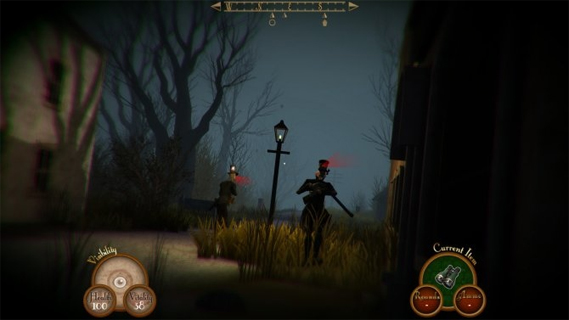This summer I am teaching a games writing class that is looking at writing in and around the video game industry and it’s really been a blast dealing with bright and engaged students. In this class, we are doing lots of reading and lots of writing on top of playing games. This week as we talked about how mechanics could be a part of a game’s narrative I pulled Starbreeze Studio’s game, Brothers: A Tale of Two Sons out of my bag of tricks. I have written about Brothers (and my love of the game) here before so it just made sense. Brothers was a powerful game. It moved me and I wanted it to move my students.
And as they always say, “Be careful what you wish for.”. One of my students sit and play through the game beginning to end in “office hours” and had a powerful response to the game and her interactions with it. Watching her respond to the game made me recall my own response to it which I was privileged enough to have in the privacy of my own home. And it made me ask some very specific questions of myself.
Why had I chosen Brothers in the first place?
Because it did exactly what it was that I needed it to do. The controls are just frustrating enough before the A-Ha moment to drive the point about the connection between the mechanics and the narrative. It was a perfect choice.
Should I have given a trigger warning for the game? Could I have done so without spoiling the game and negating the experience as an educational one?
There was really no way of giving a trigger warning about the series of events that were most disturbing in the game without actually detailing the end of the game and thus spoiling the whole experience.
Would I have done anything differently? Trigger warnings are the norm here at NYMG and I build them into the syllabus for all of my classes.
After talking to the student after the fact she said that she wouldn’t have wanted a trigger warning that spoiled the game because in the end it would have lessened the experience in the long run. So that is something that should definitely be considered for future play throughs of this game.
What has this week taught me as a teacher?
With all of the lip service that I pay to the notion that video games are an interactive experience that reach us and touch us more deeply than other narrative based media because of that interactivity, I need to be ever vigilant to that in the classroom as well as in the critique that I do of games and the choices that I make as the parent of a gaming child.
All of these are things that we need to keep in mind as teachers and parents. Because some of the things that we can read about, or even watch on film, can affect us much, much more deeply when interactivity is thrown into the mix.





One thought on “The Power of the Game: Questions I Ask Myself as a Teacher”
One question I asked myself the past semester is whether academics have the luxury to avoid spoilers; since I study games, I, like you, place a value on the integrity of the original experience of an interactive story like Brothers.
From a teacher’s perspective: I had a student wanting to write about the ending of The Last of Us, which I hadn’t played yet but had been meaning to; obviously, I wouldn’t ask him to write about something else for my sake, that would seem very inappropriate.
From a researcher’s perspective: I worked with some peers on critically analyzing The Walking Dead games, and they (no offense to them!) were SO SLOW at beating the episodes that I could barely contain myself in our discussions with points about specific plot events that would have been spoilers to them, but nevertheless very relevant to our discussion, and I chose to keep those things to myself out of respect for their experience of the game.
If, like you say, interactivity has the property of making audiences experience stories more deeply (which I would agree with), does that mean we somehow have a greater responsibility to protect those stories so that others can experience their ideal “deepness”? Do people who teach literature feel this same responsibility (and since I do, I’d say… probably not to the same extent!). In academia, how long do we wait before spoiling the ending (whether through “trigger warnings” or other things) in the name of meaningful inquiry?
Seems like an important question for we who write about games– will “spoiler alert!” become a common addition to academic essays, right above the abstract?